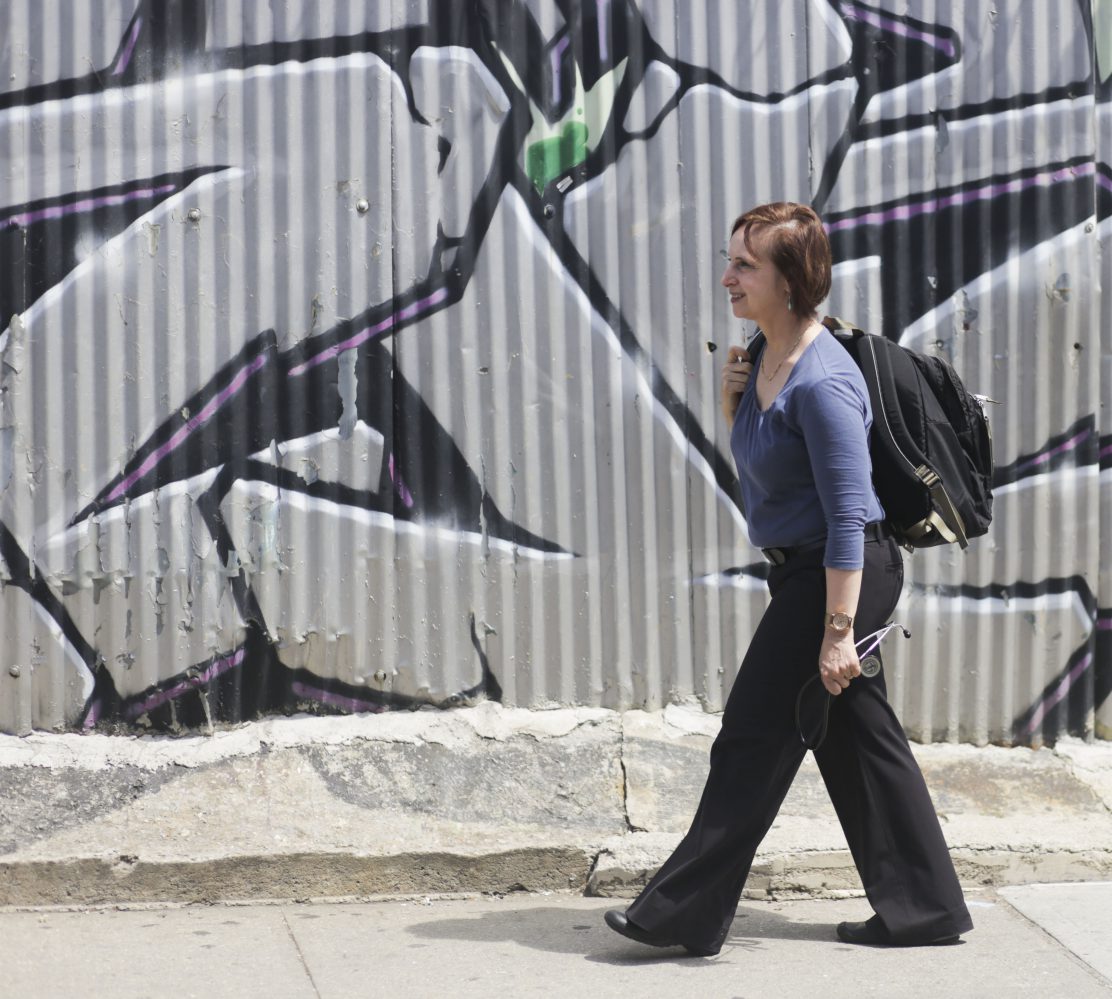I met Dr. Bertrand Bell in 1986 when I began my public health internship at Bronx Municipal Hospital Center–better known as Jacobi. His warmth, enthusiasm for his job as the director of ambulatory care services was inspiring. And his genuine interest in my career interests was equally so, given the numbers of students in all disciplines that clamored for his attention.
From Day 1, he insisted that Nancy DeVore, CNM, my direct supervisor, should get me “into all the top level meetings with the State” and “keep her in the loop on everything going on around here.” Bert, as he was known, had great affection and respect for the nurse-midwives who made up the majority of the professional staff in the Women’s Health Center that Nancy directed. He was also dedicated to the care of patients, not just patient care, and that focus guided everything he did.
On rounds, I once heard him say to someone who questioned why a patient had been admitted, “From what you’re telling me he is sick, and even though we’re not sure what he’s got, he’s sick enough to be admitted until we figure it out.”
I learned a lot by watching him keep the patient as the center of all his initiatives, his decisions, and all the battles–and there were a lot of them. He fought long and hard, but always with a smile, a big dose of compassion, and a tenacity that I will always remember and to this day strive to emulate.
Along with Dr. David Axelrod, who was the State Health Commissioner, Bert spearheaded the investigation into the death of Libby Zion. The Bell Commission was responsible for reducing the number of hours that resident physicians could work, trying to prevent mistakes born of fatigue from endangering patients and ruining medical careers. It was not popular, because hospitals needed more residents to cover their services–and that cost money that was hard to come by in a time when draconian cuts were being made to head off the astronomical rise in health care expenditures.
I was hired after my residency ended, but focused on clinical practice as a midwife instead of administration. I left Jacobi in 1991, pregnant with my first child, to take a job with better hours. Stepping off the fast track was a hard decision, but one I will never regret. Bert left Jacobi in 1991 as well, forced out because of what he had fought for–and for what he stood for: Patients above Profits.
The last time I saw Bert in his element was outside of his office, right across from the outpatient pharmacy and near the front entrance to the Jacobi Ambulatory Care Center. Right in the middle of it all. I remember that I was wearing a red maternity dress, looked like a tomato, and that he came running over to me.
“How are you doing? I heard you’re leaving us.” His smile was the same.
“Yes, but it’s still an affiliation position and I’ll be doing labor and delivery shifts here.” I recall glancing at the nondescript door to his office that had been adorned with a huge “Let’s Go Mets” sign the year they won the World Series-1986. The year I had started my residency. The year I graduated. The year I began my dream career. The one I was backing off on but would never give up.
“Good for you. Take care of yourself and your family. Regards to your husband.” Bert reached out and touched my belly, the look on his face intent, like the astute doctor he was, evaluating the patient I would soon be. “You look great. I’ve got to go.”
We hugged, the genuine kind that friends exchange when one is going off on an adventure. I don’t think he knew at that time his life was about to change as much as mine.
He disappeared into the crowd and headed off to a meeting. I had no idea it would be the last time we’d have an impromptu meeting in the halls at Jacobi.
He sent me a Sesame Street Play Gym with Bert and Ernie, as a baby gift. I know that was intentional. We danced at Nancy’s wedding a few years later, but I never again saw him in a crisp, buttoned up white coat trolling the halls to see what was going on. I sent him a copy of my memoir, Someday I’m Going to Write a Book: Diary of an Urban Missionary, to be sure he approved of the mention he got–as well as to let him know that I did return from not one, but three maternity leaves. That I indeed made good on my promise and intention to “do good things.”
The Mets lost the Wild Card game and were eliminated from World Series contention this week. This week, the world lost a great man, a great doctor, and a champion for patients’ rights and patient safety.
Bert took a big fall for his beliefs–and I know he never regretted it. Nancy’s career was just as star crossed. I’ve taken quite a few hard knocks myself. Bert never responded to my letters. I hope he at least read Someday I’m Going to Write a Book and saw that I put into practice everything the two of them taught me, and that I was still fighting for the patients. And that I’d learned, as Dr. Mark Legnini once said in the American Journal of Public Health, “Doing things right is not always the right thing to do.”
The picture in his New York Times obituary was taken in 1991, and it is exactly how I want to remember Bert Bell–and myself sitting in the chair, next to Nancy, across from him.







